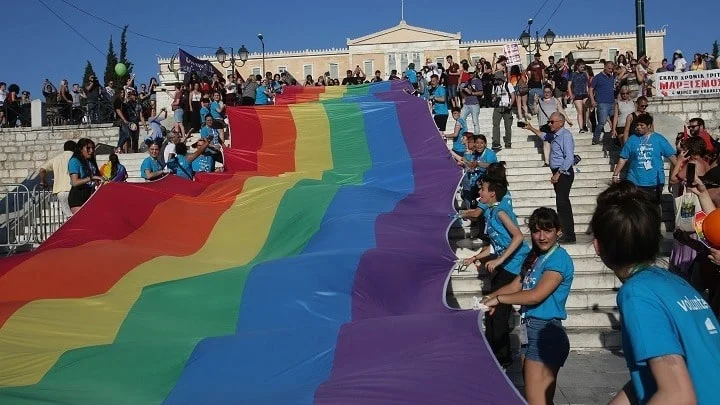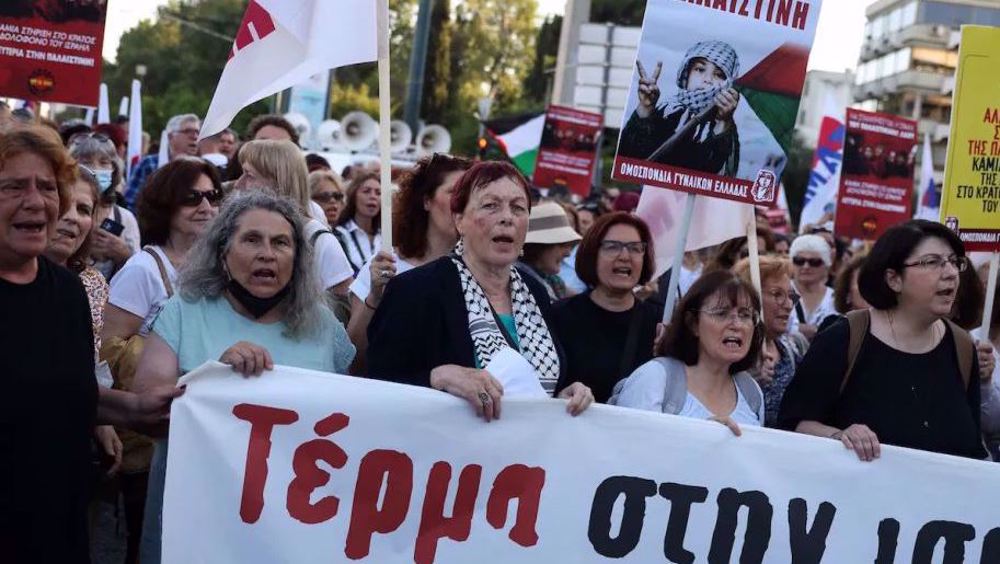Greece has climbed the ranks on the annual Rainbow Europe Map, an index that evaluates LGBTQ+ rights and protections across the continent, according to a report released by ILGA-Europe on May 21, 2025. The country now ranks 8th out of 49 European nations, reflecting significant progress in legal protections, social inclusion, and equality efforts over the past year.
The Rainbow Map, unveiled each year on May 17 to mark the International Day Against Homophobia, Biphobia, and Transphobia (IDAHOBIT), scores countries based on over 70 criteria. These include anti-discrimination laws, family rights, legal gender recognition, hate crime protections, and asylum rights for LGBTQ+ individuals.
“Greece’s advancement signals both legislative improvements and growing public awareness,” ILGA-Europe said in its statement.
🏳️🌈 Major Gains in Legal Rights
Greece’s improved ranking is attributed in part to the legalization of same-sex marriage in early 2025 — a landmark victory for the country’s LGBTQ+ community. This reform was followed by legislation ensuring parental rights for same-sex couples, the inclusion of LGBTQ+ education in public schools, and broader access to gender-affirming healthcare.
Prime Minister Kyriakos Mitsotakis called the progress “a step toward a more inclusive Greece,” emphasizing that human rights must transcend partisan politics.
“Equality before the law is not a privilege — it is a right,” Mitsotakis said during a parliamentary session on the marriage bill.
Challenges Remain
Despite the legal advancements, activists caution that societal acceptance and enforcement still lag behind. Hate crimes and discrimination — particularly in rural areas and on social media — continue to be reported, though official prosecutions remain low.
“The law is changing, but the street is slower to catch up,” said Stella Belia, a leading LGBTQ+ advocate in Athens. “We need continued education, police training, and public accountability.”
Moreover, Greece lacks comprehensive intersex protections, and non-binary recognition is not yet legally available — both of which are areas flagged by ILGA-Europe for improvement.
European Context: Who’s Leading and Lagging
At the top of the 2025 Rainbow Map is Malta, maintaining its first-place ranking for the ninth consecutive year, followed closely by Iceland, Belgium, and Spain. These countries offer strong legal protections and social inclusion frameworks.
At the bottom of the list are Russia, Turkey, and Azerbaijan, where LGBTQ+ individuals face institutional discrimination, harassment, and in some cases, legal persecution.
Greece’s movement into the top 10 marks a significant shift, especially compared to its position a decade ago, when it ranked in the mid-20s due to weak protections and widespread stigma.
Next Steps for Greece
ILGA-Europe has recommended the following to further improve Greece’s score:
- Legal recognition for non-binary identities
- Increased funding for LGBTQ+ mental health and support services
- Enhanced enforcement mechanisms for hate crime legislation
- Greater visibility and protection for intersex persons
Civil society organizations are also calling on the government to expand educational campaigns and ensure anti-discrimination laws are fully enforced in schools, workplaces, and public services.
Political and Social Impact
The Mitsotakis administration has been praised by European observers for maintaining momentum on equality issues. However, the reforms have also sparked pushback from conservative and religious groups, with some calling the same-sex marriage law a “threat to tradition.”
Still, polling suggests that public opinion is shifting, particularly among younger Greeks and urban populations, where support for LGBTQ+ rights is now the majority view.
“Progress is possible — and it’s happening,” said Nikos Nikolaidis, a Thessaloniki-based human rights lawyer. “But we must keep pushing. Visibility and protection must go hand in hand.”
As Greece continues to ascend on the Rainbow Map, its progress offers hope not only to its own LGBTQ+ citizens, but to a broader European movement still battling for equality, dignity, and legal recognition.
Source; Greek Reporter



